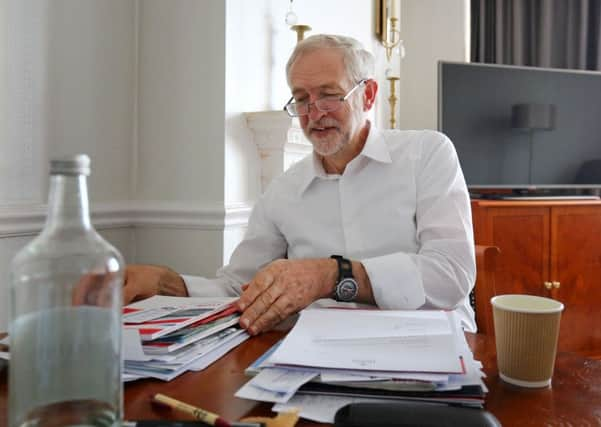Leaders: Corbyn’s Labour must not return to past


New shadow chancellor John McDonnell’s tax war on some of the world’s biggest corporations might sound noble in theory, but in practice it could see Great Britain plc shooting itself directly in the foot.
He has gone all Robin Hood, talking about taxing the rich to pay the poor. The style of rhetoric has taken us right back to the 1970s.
Advertisement
Hide AdAdvertisement
Hide AdJeremy Corbyn’s Labour Party wants to end austerity, but the only way of doing so is to grow the economy. And if we chase away major corporations, our finances are likely to suffer.
That is not to say that the likes of Starbucks, Amazon and Google should get away without paying their share of corporation tax while small businesses put their hands in their pockets.
The simple solution is to ensure that the law clearly states what tax companies – large or small – should pay. In the current situation, the rules are somewhat woolly. No-one knows where they stand, leaving room for manoeuvre on all sides.
George Osborne’s diverted profits tax, which came into force in April, has already borne fruit. It imposes a punitive 25 per cent tax on groups deemed to be artificially routing profits overseas, a move which saw Amazon quickly start booking its sales through the UK, meaning resulting profits will be taxed by HMRC. This is good news and a decision which other firms will hopefully emulate.
Meanwhile, Mr McDonnell’s crackdown has created a “Them versus Us” scenario, using words such as “aggressive” and announcing that he will “force” companies to “pay their share”.
Such emotive language does not create a world where big and small business can function happily side by side in a thriving economy.
It does not create an arena where big companies feel welcome, that they are valued by British politicians.
An aggressive crackdown will just send companies such as Starbucks, Vodafone, Google and Amazon – which employs thousands of people in Scotland in “fulfilment centres” in Dunfermline and Gourock and at a customer service centre in Edinburgh – running elsewhere, where the conditions are more favourable.
Advertisement
Hide AdAdvertisement
Hide AdCompanies obviously want to avoid paying as much tax as possible – as do individuals. If the rules allow them to get away without putting more money in the Chancellor’s coffers, they will. If the regulations do not allow them to get away with it, they will not.
But what companies need is clarity to be able to plan ahead. They need to know what the laws are, wherever they operate, as that is how they make decisions.
It is right that austerity is a political choice. But the alternative is not a simple choice of taxing the rich and spending the spoils on services.
John Longworth, director general of the British Chambers of Commerce, has warned that Mr McDonnell needs to remember there is a difference between an entrepreneurial state – one that supports growth and innovation – and a state which “reaches into and directs every facet of business and national life”.
And he is right. There must be a middle way.
We need to balance the risk of damaging our relationship with people who have the ability to grow our economy and help us to get out of austerity, against the risk posed by cuts to vital services.
The alternative will not help anyone.
Legal aid system in the dock
Serious questions need to be asked in the Scottish legal system. A report suggesting that a number of duty solicitors are milking Legal Aid funding for their own financial gain by encouraging clients to make a not guilty plea is shocking.
Over all the study, by Audit Scotland, reports that the cost of later guilty pleas – after the first opportunity – is costing taxpayers an estimated £23 million a year.
Meanwhile, the courts are struggling to cope with the number of cases passing through as it is.
Advertisement
Hide AdAdvertisement
Hide AdThe system has become “logjammed”, despite initiatives in recent times to avoid last-minute admissions on the day of trial.
The Scottish Legal Aid Board my believe that the problem is not widespread, but if even a few lawyers are unnecessarily encouraging clients to take on a plea which they know is not right in a bid to make money out of Legal Aid, this is not acceptable and is adding to a burden which is already becoming unmanageable.
Clients told how duty solicitors refused to listen to them and insisted on putting in not guilty pleas when they would have preferred to plead guilty to a crime they know they committed.
An early not guilty plea and an eventual guilty verdict usually results in a tougher sentence for the client, as well as a higher fee for the lawyer.
Whether the situation occurs for monetary reasons or because the solicitors on duty are too hard pressed to listen to individual clients’ needs, is almost irrelevant.
This has gone too far. Either way, these lawyers are failing their clients and failing the Legal Aid fund, which exists to help disadvantaged individuals.
The review by the Scottish Legal Aid Board of the legal aid system must ensure these issues are addressed urgently.